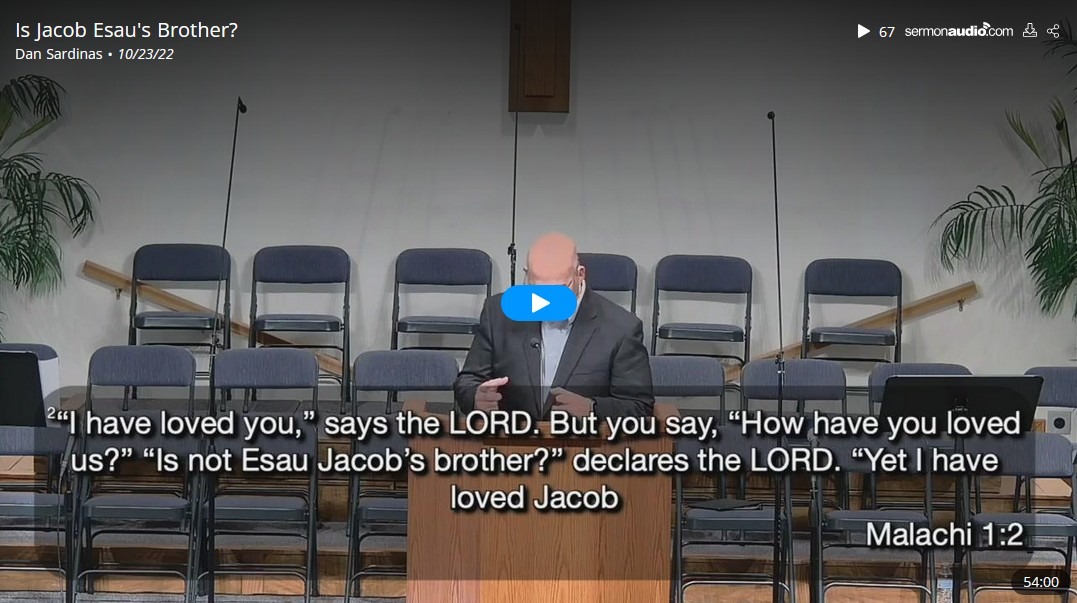Auto-generated transcript:
Open up your Bibles today to the Book of Malachi. If you don’t know where Malachi is, find Matthew, the first book of the New Testament, and go one book before it. Malachi is the last book of the Old Testament.
Next Sunday, we will be having a baptism, so if you have never been baptized before and would like to follow the Lord in believer’s baptism, please see me after the service. We can talk about that. Praise the Lord for baptisms—amen! I’m curious, before we begin, how many people here have ever heard a sermon series through the entire Book of Malachi? Raise your hands. Just a few—that’s what I expected.
Let’s pray and ask for God’s help. Father, thank you so much for your blessings to us. Help us now as we open your holy word. Lord, this glorious Book of Malachi is of great importance, not just for Israel at the time, but for us as well today. Help us to learn from it, to see you in it, and make much of Jesus in our hearts because of it. Thank you for your love, grace, mercy, sovereignty, and holiness—all that you are revealed to us in this text. We love you, Lord. In Jesus’ name, amen.
Make sure to pick up a scripture journal from the Welcome Center if you haven’t already. They’re free, first-come, first-served. They contain Zephaniah, Haggai, Zechariah, and Malachi. You can take notes and journal throughout the week, helping you capture more of what you’re learning as we go through this book.
Let’s look at Malachi 1:1. “The oracle of the word of the Lord to Israel by Malachi.” The first thing we see here is the message is called an oracle. The Hebrew word here is “burden,” and our series is titled “The Burden of Apathy.” This message Malachi delivers to Israel is heavy, serious, and demands obedience and respect. It’s the Lord’s burden—his weighty word. Communicating God’s word carries immense responsibility, not as a chore but as a duty. These words, whether in Genesis, Revelation, Acts, Song of Solomon, or Proverbs, carry significant weight and seriousness.
Malachi’s message is especially burdensome because God is calling Israel to account. It’s written specifically to Israel, referring here to the entire nation, particularly the tribe of Judah.
To understand Malachi, we must briefly review Old Testament history. All Jewish people descend from Abraham, who God called and promised a great name, family, and land. Through Abraham’s lineage, specifically Jacob (later renamed Israel), came the twelve tribes. Israel spent 400 years enslaved in Egypt, was delivered by Moses, and settled in the Promised Land, repeatedly disobeying God’s instructions.
Eventually, Israel asked for a king, starting with Saul, then David, and Solomon. After Solomon’s death, the kingdom split—ten northern tribes (Israel) and two southern tribes (Judah). Both kingdoms disobeyed God, resulting in the northern tribes’ destruction by Assyria and Judah’s later destruction by Babylon, who demolished Jerusalem and exiled the people.
Seventy years later, God allowed the return of a remnant to rebuild the temple (recorded in Ezra and Haggai) and city walls (recorded in Nehemiah). But 100 years after returning, the people grew apathetic, losing passion for God, just going through the motions in worship, and giving God leftovers. Even priests were corrupt, marriages suffered, and unfaithfulness spread.
Malachi means “messenger.” We know little else about him. God speaks through Malachi, addressing Israel’s apathy through six arguments. The first argument (Malachi 1:2-5) tackles Israel’s cold-heartedness. God declares, “I have loved you,” and Israel arrogantly responds, “How have you loved us?”
God’s love isn’t based on feelings or human merit, but His sovereign choice. God chose Jacob, not Esau, highlighting His sovereign election and grace. Despite Israel’s disobedience and exile, God restored them, a privilege not extended to Esau’s descendants, Edom, whom God judged harshly, never allowing recovery. Thus, Israel’s return and rebuilding demonstrated God’s grace.
Apathy arises when we misunderstand God’s love, thinking it’s about feelings or deserved blessings. When we recognize His sovereign grace, our apathy fades. God calls us, as believers chosen through faith, reminding us of His eternal election, mercy, and grace.
To overcome apathy, remember daily that God’s love is sovereign and not based on fleeting emotions or our merit. Always recognize His grace, mercy, and election. Thank God each day for salvation and His undeserved love. Let’s root our joy in these truths, repenting from apathy and embracing gratitude.
Let’s pray. Oh God, thank you for your sovereign love and election. Help us understand deeply and respond passionately, rooting our joy in your steadfast, unmerited grace. Overcome our apathy, renew our hearts, and draw us closer to Christ. In Jesus’ name, amen.
Please stand as we close in song. If you need any help or prayer, meet me in the Welcome Center. God bless you.

